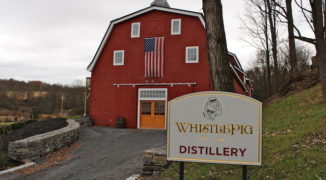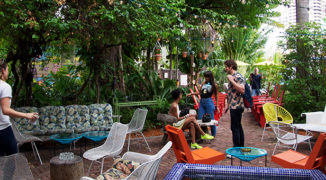Single-malt whiskey: a phrase practically synonymous with names like Glenlivet, Laphroaig and their kin. But in the Pacific Northwest, more than 4,000 miles away from the peat bogs of Islay, one distillery is giving their own spin on what was once the sole domain of Scotch whiskey.
As one of the largest whiskey distilleries west of the Mississippi, Westland is known and loved among Seattleites. But for those of us who don’t call the state of Washington home, join us on a step-by-step tour of Westland’s facility below:
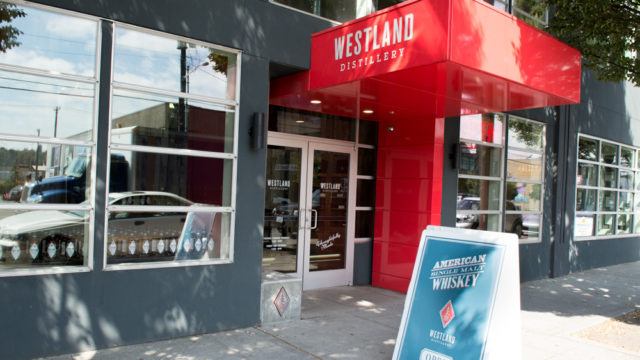 The entrance to Westland Distillery in Seattle’s SoDo neighborhood. All photos courtesy of Naomi Tomky.
The entrance to Westland Distillery in Seattle’s SoDo neighborhood. All photos courtesy of Naomi Tomky.
Westland, headquartered in Seattle’s industrial SoDo neighborhood, opened its doors in 2010 with a mission in mind: to create a distinctly American-style single malt whiskey, using the ingredients that grow in the region’s lush, verdant landscape (and perhaps with a little inspiration from the area’s ever-growing craft beer movement, too). Since then, Westland has become one of the largest single-malt producers in the country, producing out of a 13,000 square foot distillery.
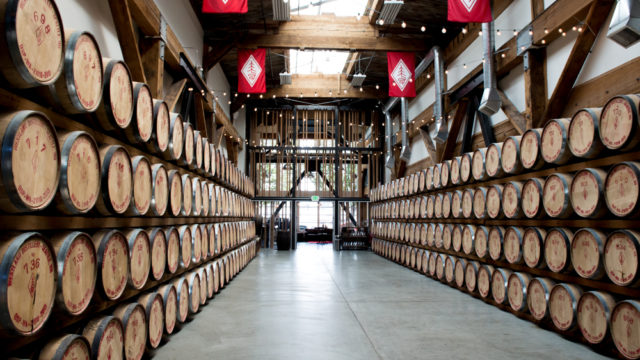 The cask room, which also serves as an event space for the distillery.
The cask room, which also serves as an event space for the distillery.
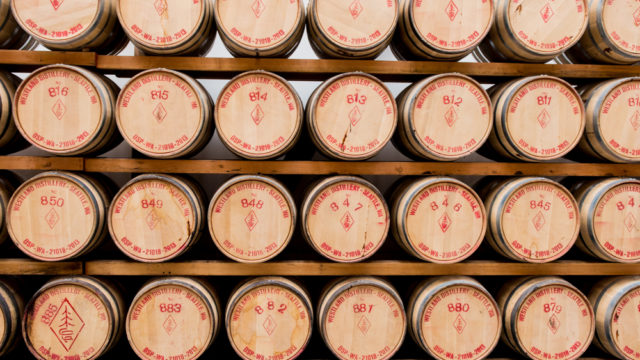 Five percent of Westland’s casks are kept in the Seattle cask room—the rest are stored at a facility in Hoquiam, a small town a few hours west of Seattle.
Five percent of Westland’s casks are kept in the Seattle cask room—the rest are stored at a facility in Hoquiam, a small town a few hours west of Seattle.
Though barrels line the walls at Westland, most of its casks are stored in Westland’s rackhouse, located on Washington’s North Bay in a small town called Hoquiam. The 8,000-person town, which happens to be Westland founder Emerson Lamb’s hometown, has a steady, predictable and damp climate, similar to that of Scotland: an ideal environment for the maturation process.
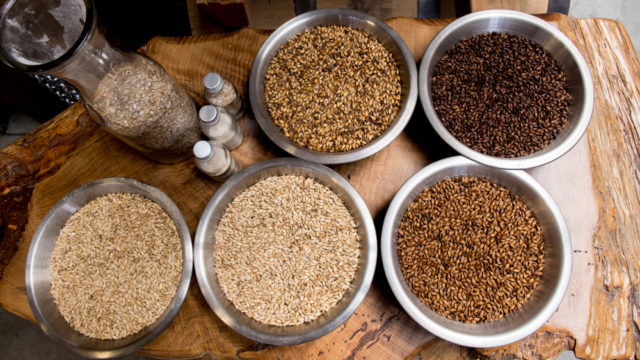 At the end of the cask room, a small table holds the various barleys that are used in the brewing process.
At the end of the cask room, a small table holds the various barleys that are used in the brewing process.
Westland has produced a regular lineup of three whiskeys (in addition to special casks and one-offs). One major difference between them and their whiskey-making peers? There’s no rye or corn to be found here. Westland uses barley exclusively, most of which is grown in or around the state.
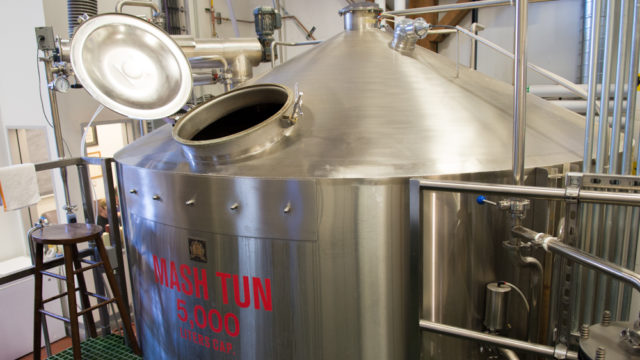 Moving into the Mash Room, where barley malt is converted into sugar inside the Mash Tun.
Moving into the Mash Room, where barley malt is converted into sugar inside the Mash Tun.
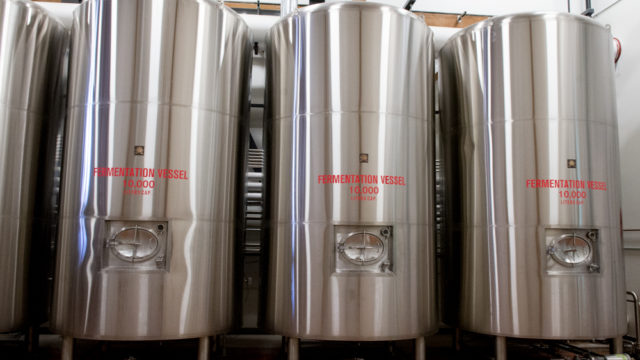 The rest of the Mash Room is occupied by a series of five 10,000-liter fermentation vessels.
The rest of the Mash Room is occupied by a series of five 10,000-liter fermentation vessels.
A Washington pale malt forms the backbone for most of their whiskeys, with specialty malts (such as pale chocolate, Munich, and others) adding nuance.
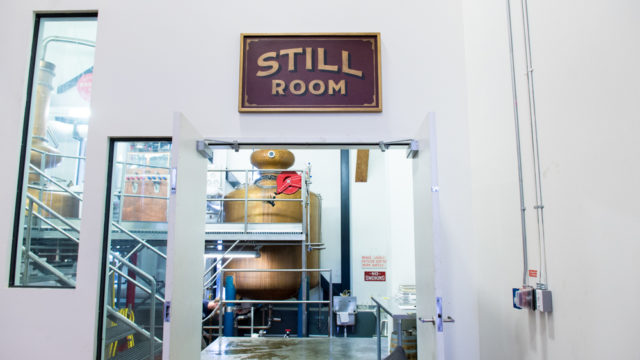 Next, the Still Room, another multi-level room.
Next, the Still Room, another multi-level room.
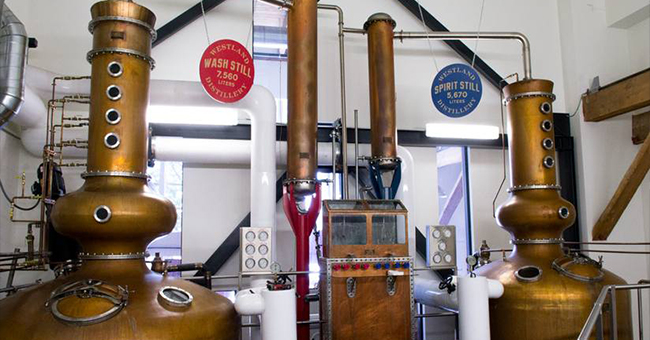 Spanning both levels of the room, the two Vendome copper-pot stills: on the left, a 7,570-liter still; on the right, a 5,670-liter.
Spanning both levels of the room, the two Vendome copper-pot stills: on the left, a 7,570-liter still; on the right, a 5,670-liter.
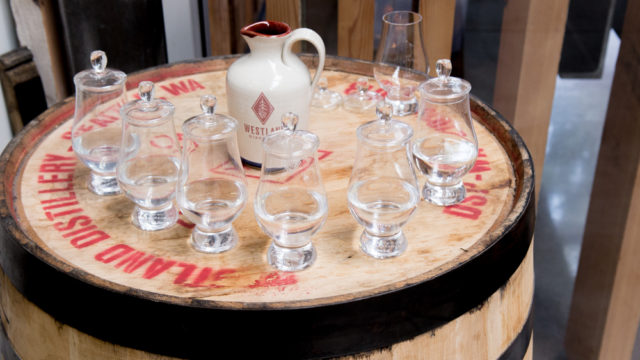 Just outside the Spirit Room, a small tasting table used by the distiller to dial in the right flavor of the batch.
Just outside the Spirit Room, a small tasting table used by the distiller to dial in the right flavor of the batch.
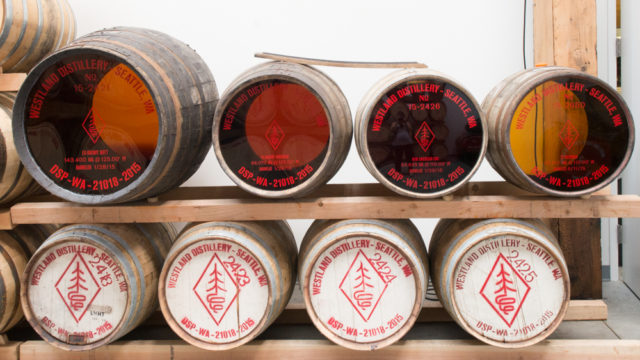 Four different casks with clear plexi-glass fronts, showing the color difference each barrel imparts to the spirit.
Four different casks with clear plexi-glass fronts, showing the color difference each barrel imparts to the spirit.
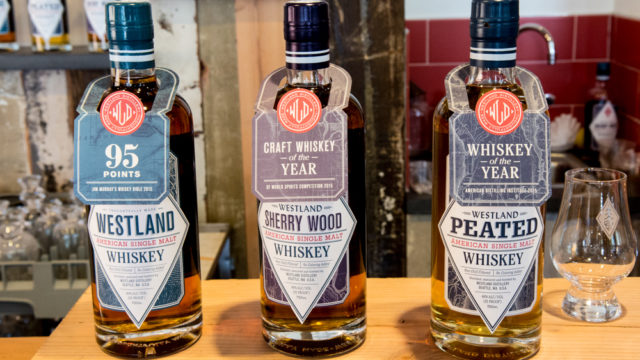 Westland’s lineup of whiskeys, all of which are made with barley malt.
Westland’s lineup of whiskeys, all of which are made with barley malt.
Their American Single Malt, made with a pale malt base and four specialty malts, is matured in new American oak casks for a minimum of 24 months. A sip may yield notes like graham cracker (on the nose), chocolate custard and cherries. The Peated Malt, released this year, is a study in balance: made with both pale and peated malt spirits (combined after maturation), the end result is smoky without being too overwhelming. Think less “leather shoe lit aflame,” more campfire, leather and earthy spices. And, while Westland may have only released its Sherry Wood single malt this year, it’s over a century in the making: the distillery matures the whiskey in American oak casks that once held sherry in Montilla for decades, before making the return journey back stateside to lend fruit and spice notes to Westland’s whiskey.
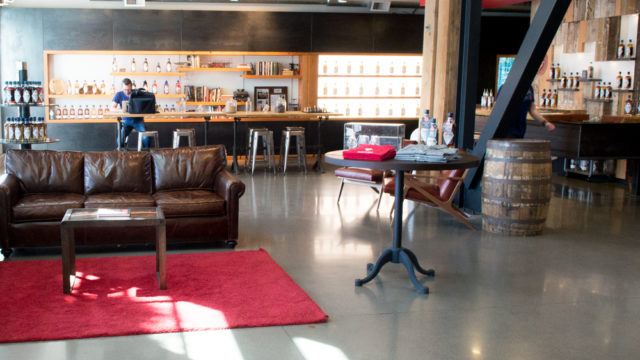 The living room-like entrance hall of the distillery.
The living room-like entrance hall of the distillery.
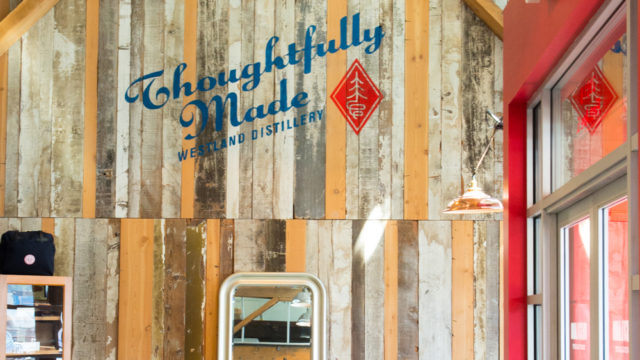 The wall at Westland’s exit, featuring the distillery’s motto.
The wall at Westland’s exit, featuring the distillery’s motto.


